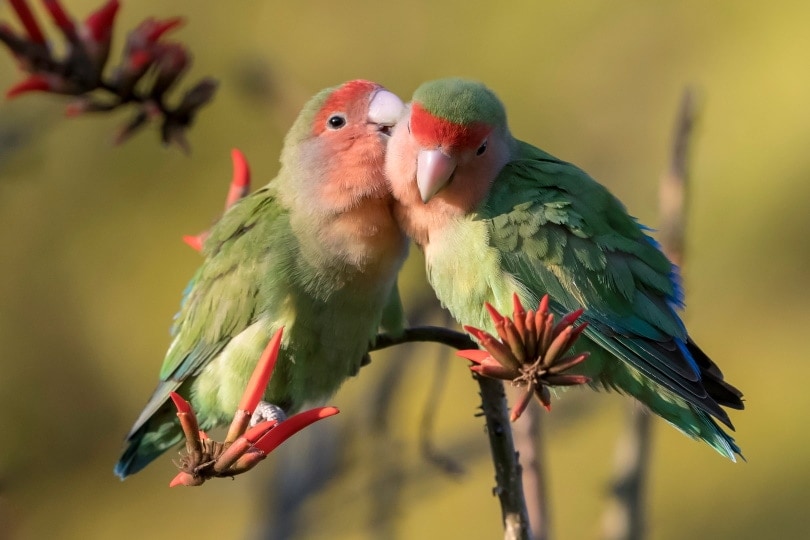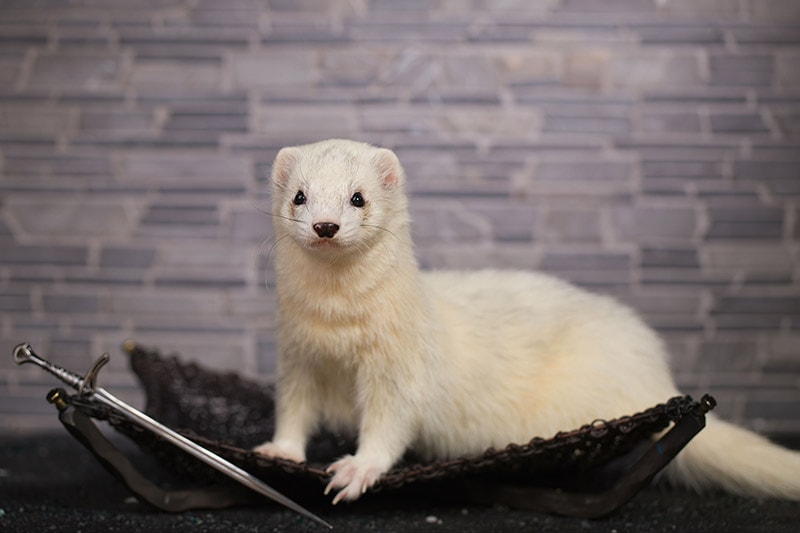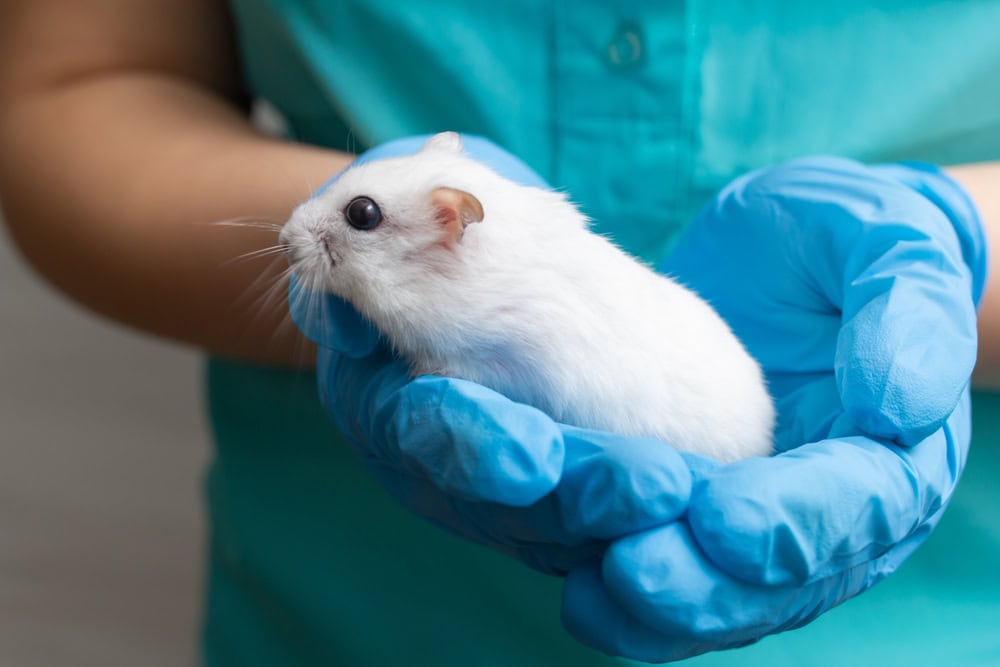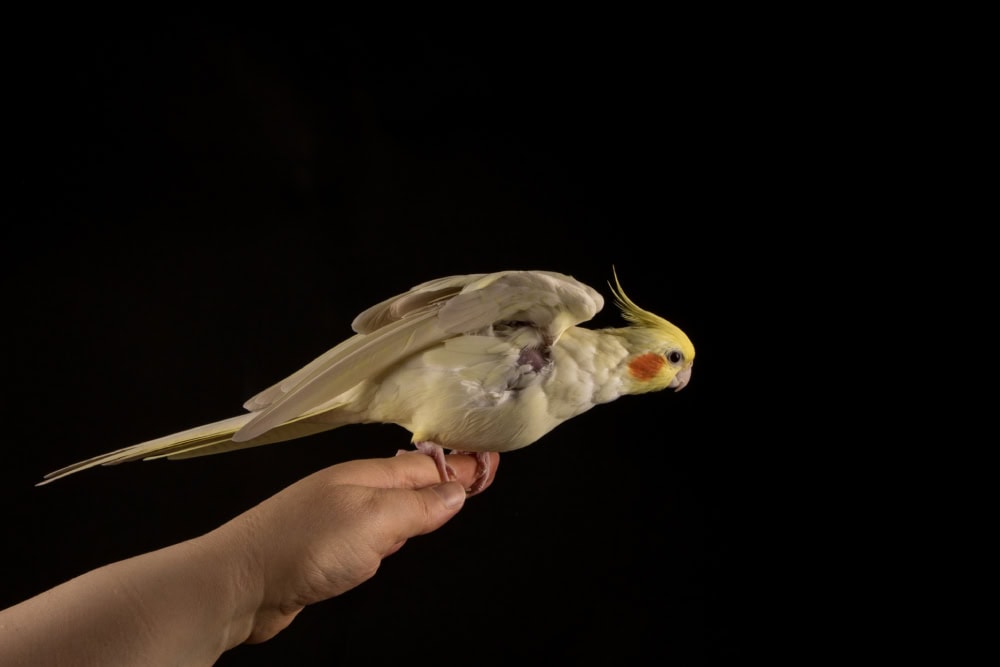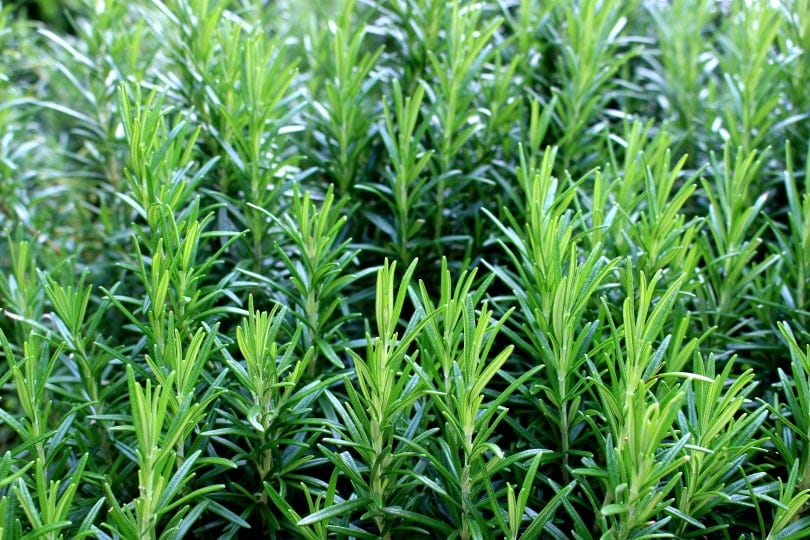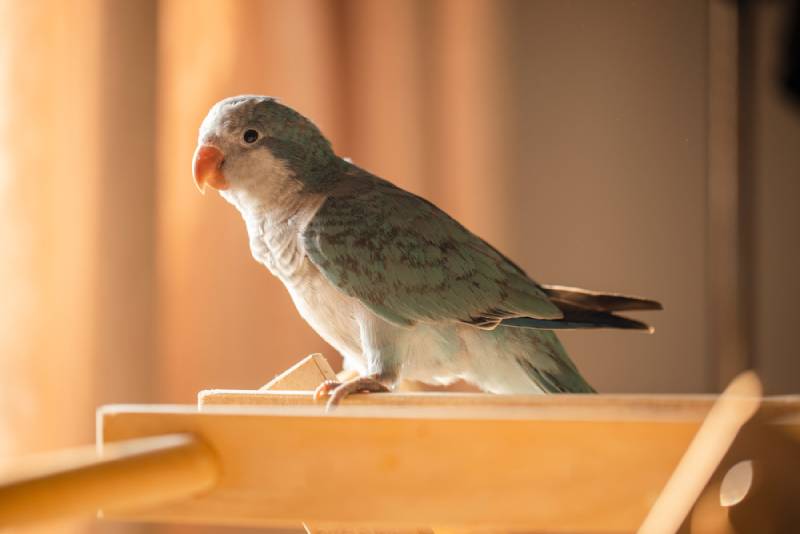
VET APPROVED

The information is current and up-to-date in accordance with the latest veterinarian research.
Learn more »Click to Skip Ahead
Quaker parrots (Myiopsitta monachus) are a type of South American bird with bright green and yellow plumage, widely beloved for their zany, clownish personalities. They are also known as monk parakeets. Unfortunately, however, you may have heard that they’re restricted or outright illegal to own in some US states. Why exactly is that?
While they are adorable, Quaker parrots are illegal because they are considered an invasive species that can quickly reproduce and grow out-of-control-sized populations in urban centers. Turns out they’re exceptionally adaptable avians, and they can devastate agricultural fields nearby within the blink of an eye.

Where Are Quaker Parrots Illegal to Own?
Because of damage to local wildlife and manmade structures alike, 10 states have banned the private ownership of Quaker parrots.
In addition, the following states allow Quaker parrots to be kept with some conditions:
If you’re curious for more specific details on how the Quaker parrot poses an invasive threat, other places their ownership is banned, and whether owning one yourself is a good idea, join us down below for all that and more.

About the Quaker Parrot
Also called the monk parakeet, the Quaker parrot was first discovered by French naturalist Georges-Louis Leclerc in 1780. We’re not certain where, exactly, they were discovered, but it is something of a moot point considering their prodigious adaptability. Quaker parrots live in the temperate and subtropical parts of Brazil, the more arid Andean mountain passes, and the more arid lowlands in Peru. Simply put, they get around. In terms of their success as an invasive species of parrots, they are second only to the ring-necked parakeet.
Quaker parrots are famous for their robust stick nests, composed of dry grasses, twigs, and nearly any suitable brush that can be found. Quaker nests are very sophisticated by bird standards, and they’ve been observed creating avian apartments with separate his-and-hers entrances and rooms for mated pairs.
As human civilization became more urbanized in South America, Quaker parrots spread with them, and feral flocks were common. The most notorious is a self-sustaining population in the heart of Rio de Janeiro. Their sheer numbers made them an obvious pet choice for bird lovers, and their social character only reinforced that. By the time they became an irritating issue for some places, it was too late.
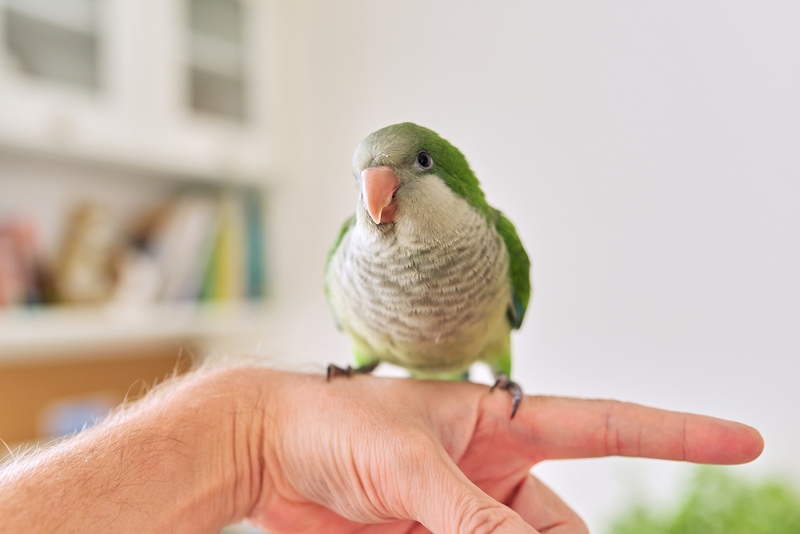

Why Are Quaker Parrots Considered Problematic?
We touched on the reasons above, but there’s a bit more to the subject of how Quaker parrots have plagued humans in South America, the US, and elsewhere. Let’s examine each of these facets in closer detail down below so you can get a better idea of how problematic these striking parrots can be.
Threat to Agriculture
Quaker parrots are voracious eaters, and combined with their high reproductive rate, they pose a sometimes-existential threat to important crops like corn. Even worse, they’re very non-picky critters and will eat nearly anything even vaguely appropriate for the sake of subsistence.
Threat to Native Wildlife
Quaker parrots siphon off food that native bird populations need, and their nests make prime bird real estate nearly useless for other species that don’t build such big dwellings. Over time, large numbers of Quaker parrots can effectively crowd or thin out native bird numbers in areas.
Damage to Infrastructure
Particularly in the US where they’re banned, Quaker parrots are infamous for damaging power lines, transformers, and utility equipment. Their nests promote electrical fires that can be very costly and time-consuming to repair, potentially causing power outages along the way.


Where Are Quaker Parrots Legal to Own?
Despite their real dangers in unchecked feral populations, Quaker parrots are so charming that you almost can’t help but wonder where they’re legal to own. Lucky for all you prospective parrot parents out there, all 40 states not listed at the top of this article allow the ownership of Quaker parrots.
Depending on what state you live in, you may be required to apply for an exotic pet permit, such as in Nebraska. Other states, like Arizona and Montana, have no restrictions whatsoever. Check your state and municipality’s exotic pet laws before deciding to buy a Quaker parrot for yourself.
Is Owning a Quaker Parrot a Good Idea?
Yes, it is perfectly possible to be a responsible Quaker parrot owner in places where you’re allowed to own them. They’re more challenging to care for compared to a budgie, for instance, and need ample space indoors to fly around, play, and stay active. Quakers tend to be a bit clingy and need a lot of social interaction to stay happy too, which may not be great if you work long hours. Lastly, you have to consider security measures—you don’t want your bird getting out and becoming a pest, after all.

Conclusion
Quaker parrots are an outgoing and energetic bird that survives a little too well in new environments. Sadly, 10 states have made them illegal to own because they can cause so many issues, but Quakers are still a great pet for those legally allowed to own them.
Featured Image Credit: V.S.Anandhakrishna, Shutterstock
How useful was this post?
Click on a star to rate (you can leave written feedback after clicking submit)
Help us improve Hepper for pet parents!
Your feedback really matters.
What did you like about this post? Also how can we improve it?











